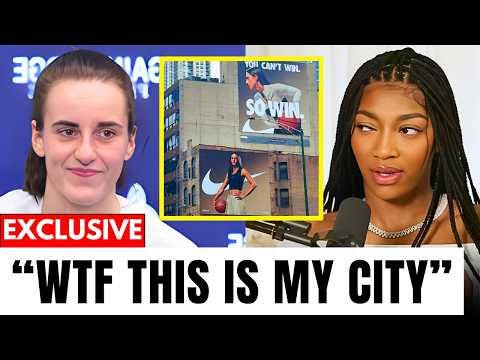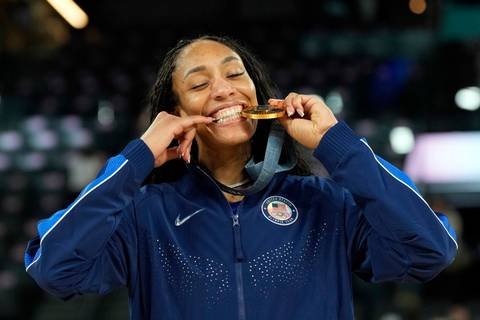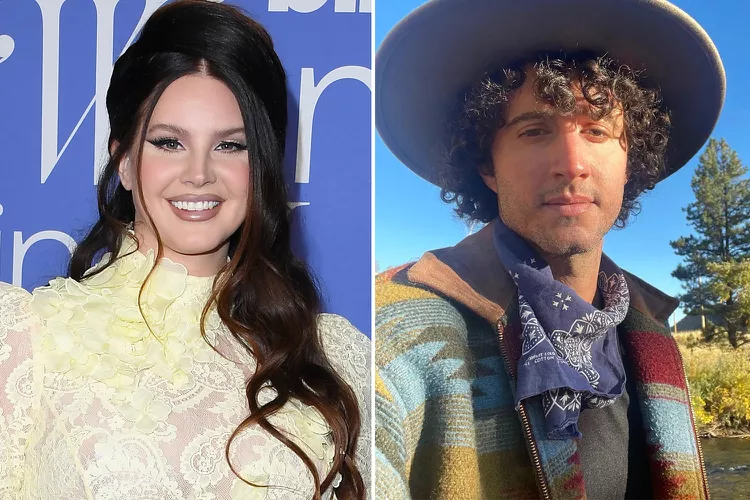
Nike recently revealed a striking billboard of Caitlin Clark in the heart of Chicago, drawing significant attention to the basketball star. The massive display celebrated Clark’s remarkable achievements and highlighted her as one of the sport’s rising icons. Positioned in a bustling part of the city, the billboard was not just a tribute to Clark’s talent but also a marketing move that placed her firmly in the spotlight. It’s no surprise that such a bold and grand gesture caught the eye of basketball fans and sparked a variety of reactions from the public and fellow athletes alike.
Among those reacting to the large-scale tribute was Angel Reese, another prominent figure in women’s basketball. Reese, who has often been in the headlines for her own stellar performances and fierce competitiveness, shared her thoughts on the billboard with her own audience. Her response wasn’t necessarily one of admiration, but rather a reflection of the ongoing conversation surrounding representation and the spotlight that athletes from different backgrounds deserve. Reese’s reaction added a layer of complexity to the conversation, touching on how athletes are celebrated and the dynamics at play in the media.
Nike’s move to feature Clark in such a monumental way, especially in a city like Chicago, underscores the growing recognition of female athletes in mainstream advertising. Clark’s rise to prominence has been nothing short of impressive, and such a billboard acknowledges her role in not only shaping the future of basketball but also the visibility of women in sports. However, Reese’s response indicates that there are still debates within the sports community about how athletes are recognized and the varying levels of exposure they receive based on their popularity, race, and other factors.
In a way, Reese’s comments serve as a




